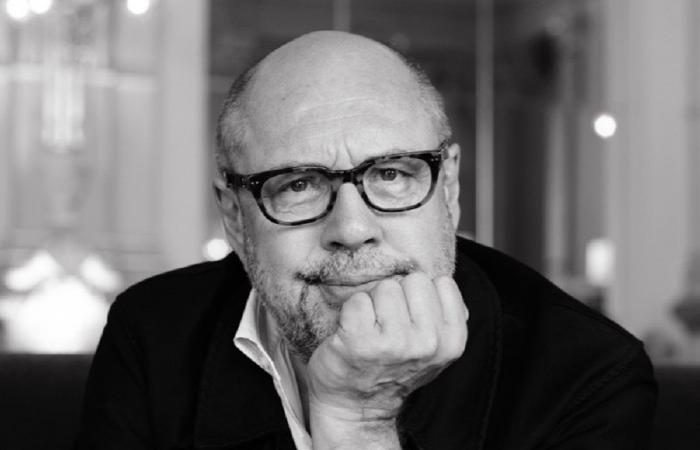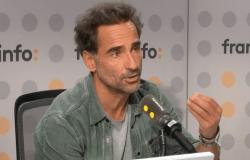
“I always find it more interesting when the comedy is precisely on the edge of the abyss”
13/11/2024 – The Belgian filmmaker and writer talks to us about his new film, the funny but melancholic portrait of an artist who has lost his sense of reality
(© Patricia Mathieu)
We met the Belgian filmmaker and writer Stefan Liberski on the occasion of the release in Belgium with O’Brother of his new film, the comedy The Art of being happy [+lire aussi :
critique
interview : Stefan Liberski
fiche film]which paints a funny but melancholic portrait of an artist who has lost his sense of reality, Jean-Yves Machond, played with conviction by Benoît Poelvoorde. Lost in his entirely theoretical vision of art and life, he moved away from the world of sensations and feelings, and will try, through a return to the sources of painting, to change the course of his existence.
(The article continues below – Advertising information)
Cineuropa: Can you tell us about The art of being happy in a few words?
Stefan Liberski : The art of being happyI believe that it is above all a character, that of Jean-Yves Machond, who is played by Benoît Poelvoorde. It is the quest of a man who is lost in concept, lost in unreality and who makes his way towards inspiration and happiness. He was a recognized conceptual artist, who exhibited empty rooms. Then he was a teacher. But when the film begins, he is looking for something else. He leaves for Normandy to try to let himself be carried away by the territory of the impressionists, the beauty of the world. But as always with him, it remains in the realm of the idea more than anything else, and that is the essence of comedy.
Can we say that he has been so immersed in the concept that he has lost contact with real life and that his escapade will make him rediscover both his sensations and his feelings?
Yes, I think that’s what he’s looking for. He has been, he is locked into his ready-made ideas, and he suffers from it. He has a difficult family history too, but he’s at a point in his life where he’s trying to get by. But he escapes from one idea to enter another idea. It sounds a little pathological when I say it, but that’s what makes it funny too, especially since there are many misunderstandings in his interactions with the people he meets. Inspiration doesn’t come, so he mixes with local people, the little local painters. This Normandy adventure will also be an opportunity for him to reconnect with his body, through love, through the act of painting that he had somewhat forgotten.
To play Machond, we needed an actor with the build.
Benoît Poelvoorde has been there since the start of this project, which inspired by a book written by Jean-Philippe Delhommewith whom we are both friends. We talked a lot with Benoît, throughout the writing, the discussion continued on the shoot, it was still changing. It’s a real collaboration. I was a little afraid that this character, lost in the concept, would lack tenderness, and Benoît brought him a great deal of humanity. Whatever he plays, there is enormous generosity.
There is a rather unexpected character, it is the house in which Machond settles, a sort of UFO placed in the Normandy landscape.
Obviously, he was not going to choose just any house for his exile. He set his sights on a house by an architect from the 70s, an anarcho-utopian architect, one of those bubble houses, or saucers. Ruins that are almost uninhabitable, but which are new concepts. It was a lot of fun for us to make this house.
Machond’s character is on the verge of collapse, and yet the film is still a comedy. Can you tell us about the tone of the film?
I always find it more interesting when the comedy is right on the edge. Something important is happening for Machond, and since he is wrong all the time, it creates comical situations. His way of seeing things in concept is also a form of resistance, a refusal to open up to the world. It’s a film about the denial of reality in fact, that seems particularly interesting to me to explore because it’s something that a lot of people suffer from today, I think. We have a world crippled with ideologies, with battles, ideas, a little dialectic that is not very subtle. But from time to time you have to step aside to see reality. So this comedy is also an invitation to more reality.
(The article continues below – Advertising information)





